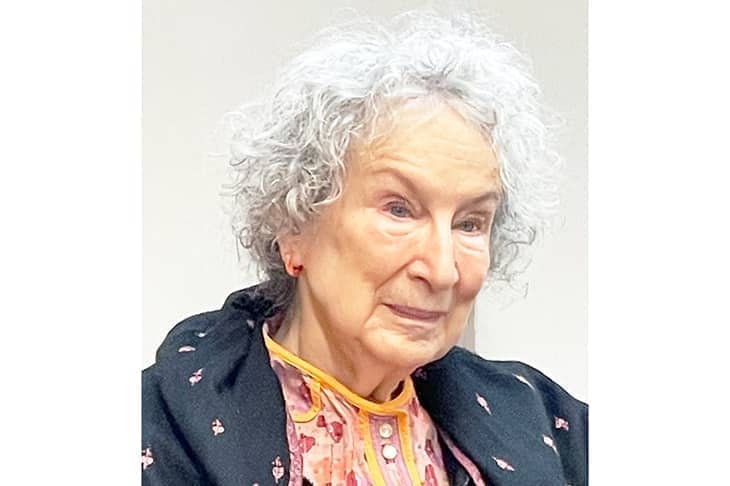Margaret Atwood is among the major writers of English fiction of our time. This is a very boring way to start a review, but it is true. Atwood, now 82, is prize-winning, popular and prolific. She’s won two Bookers. Several of her books have attained totemic status with readers, most obviously the reproductive dystopia of The Handmaid’s Tale, but also Cat’s Eye, for its steely portrayal of girlhood cruelty, and The Blind Assassin, which combines feminist grit with genre-straddling swagger.
And there are so many books. Seventeen novels, more than a dozen collections of poetry, sundry shorter fictions and children’s stories, and multiple works of non-fiction, of which Burning Questions is the 11th overall and the third compilation of Atwood’s journalism, essays and speeches. It’s an embarrassment of content, and Atwood does sound almost embarrassed about it. In the introduction to Burning Questions she comes close to issuing an apology for the sheer volume of her output:
If you’re asked to write ten occasional essays a year and say no to 90 per cent of them, that comes to one essay a year.

Get Britain's best politics newsletters
Register to get The Spectator's insight and opinion straight to your inbox. You can then read two free articles each week.
Already a subscriber? Log in






Comments
Join the debate for just $5 for 3 months
Be part of the conversation with other Spectator readers by getting your first three months for $5.
UNLOCK ACCESS Just $5 for 3 monthsAlready a subscriber? Log in